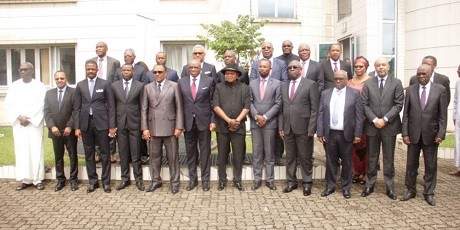Enforcement of the foreign exchange regulations adopted by CEMAC in 2018 continues to cringe in business circles in the sub-region. Demonstrations made to the national monetary authorities and the Central Bank have yielded no tangible results.
The difficulties encountered by investors are linked in particular to the collection of supporting documents requested by banks from companies on transactions that are supposed to be cleared; obtaining supporting documents from various administrations, the anteriority of certain transfer files already archived; the lack of visibility of companies on the real reasons for blocking certain transfers, even after they have provided all the supporting documents to the banks.
A situation that creates dysfunctions and blockages in fund transfers and slows down activity, protests the Union of Central African Employers (UNIPACE). The employers’ members of Cameroon, the Central African Republic, Congo and Gabon, meeting in an extraordinary session on May 11, 2021, denounced the policy of double standards applied by the Bank of Central African States (BEAC) in the application of said regulation.
Their reaction stems from the fact that “the members of UNIPACE note that Equatorial Guinea was able to obtain from the BEAC, as of April 14, 2021, a six-month suspension of the application of the aforementioned measure”. This is why “they ask, given the similarity of the problems and for the sake of fairness, that the stay be extended to other countries in the sub-region”.
According to the bosses of Central Africa, the difficulties linked to the application of exchange regulations means that “for many companies, the breaking point will be reached at the end of May 2021. This exposes the sub-region to a complete stop of economic activities in certain important sectors including the agro-food industry ”.
According to the BEAC, it is the commercial banks that burden the funds transfer circuit with “excessive documentation and sometimes unrelated to the purpose of payment for the settlement of transactions destined for abroad”. For the monetary issuing institution, the blocking is not at its level, especially as a decision specifies that “the clearance documents must be required a posteriori, in accordance with instruction n ° 007 / GR / 2019 specifying the conditions and modalities of declaration, domiciliation and payment of imports of goods and services ”.
The two parties who are not at their first standoff continue to blame each other.



